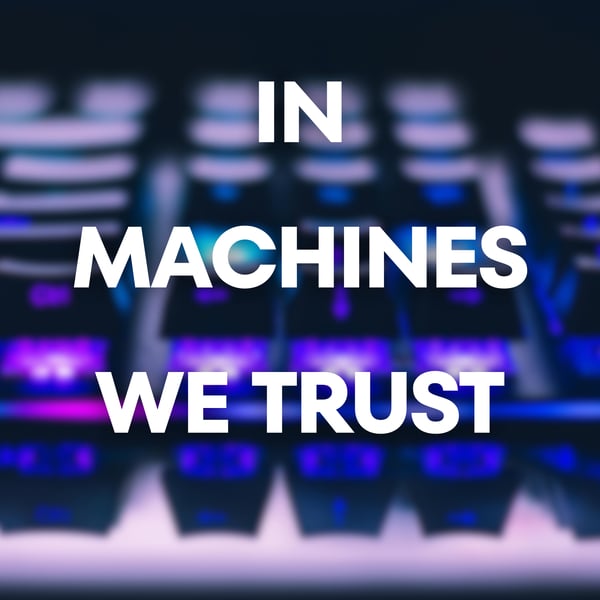Broadcasting Brilliance: RadioGPT's Role in Automating 250 US Radio Stations
In Machines we Trust
In Machines we Trust
0 • 0 Ratings
🗓️ 22 February 2024
⏱️ 5 minutes
🧾️ Download transcript
Summary
In this episode, we delve into the brilliance of RadioGPT as it automates operations across 250 US radio stations, reshaping the broadcasting landscape with innovation and efficiency.
Invest in AI Box: https://Republic.com/ai-box
Get on the AI Box Waitlist: https://AIBox.ai/
Transcript
Click on a timestamp to play from that location
| 0:00.0 | Radio just might be the next area to be completely disrupted from chat GPT and a lot of these AI technologies. |
| 0:07.0 | So recently there is a new product or project coming out called Radio GPD, which essentially makes it, I would say, pretty easy to replace human DJs with bots. |
| 0:17.0 | And essentially what this new, you know, radio GT could do is that it can do most of the work required to manually run a radio station and it does it all without human labor. |
| 0:29.7 | So according to their website, it uses GPT4 powered bots that can pretty much perform different charts. It can work with them on the music |
| 0:39.4 | lineup, the local radio, the news, and it can even field listeners, comments, and questions, |
| 0:45.1 | which is pretty interesting. Radio GPT can also do a lot of the tasks that would otherwise |
| 0:49.9 | just essentially be like in the domain of like interns or kind of the entry level staffers. |
| 0:55.9 | So it can do things like creating complementary blog posts or converting live shows into podcasts and |
| 1:01.3 | social media, right? And it really is automating a lot of the tasks that are done at a radio |
| 1:06.3 | station. So unlike other projects like AI radio, which I think The Verge reported on last month, which is just kind of more like a fun thought experiment, this is actually a legitimate product. And apparently it's going to debut next month with Alpha Media and Rogers Sports and Media, which represents about 250 radio stations in the U.S. and Canada. |
| 1:31.1 | So this is going to be actually widely rolled out. The CEO, his name is Daniel and |
| 1:37.0 | Standig, and he told Axios that the product isn't really meant to, I guess, well, the way |
| 1:43.2 | they're positioning it is that it's going to save the radio, |
| 1:45.7 | not compete with it, and that it's going to be, you know, filling the hours that radio stations |
| 1:49.8 | can't man anyways, right? So you think like the super late nights and all that kind of stuff where they |
| 1:53.9 | don't have people. He says, what we're looking to do is augment a station's ability to fill |
| 1:58.8 | its programming with more live and local content. |
| 2:02.5 | And the way that he kind of positions it is that pretty much any radio station can use AI to do |
| 2:08.9 | all this extra stuff they were unable to do before. And you know, that might be true in some cases, |
| 2:13.1 | but also the companies that have signed up for this aren't exactly like these little indie radio stations. |
| 2:19.7 | So I'm actually thinking it's going to be more likely that radio companies are going to have this opportunity to use this as a way to cut their labor forces and essentially make radio programs, radio stations, a lot cheaper. And, you know, a lot of people think that that's, |
| 2:38.7 | obviously this company says, thinks that's controversial and doesn't, and says that's not their goal, |
... |
Please login to see the full transcript.
Disclaimer: The podcast and artwork embedded on this page are from In Machines we Trust, and are the property of its owner and not affiliated with or endorsed by Tapesearch.
Generated transcripts are the property of In Machines we Trust and are distributed freely under the Fair Use doctrine. Transcripts generated by Tapesearch are not guaranteed to be accurate.
Copyright © Tapesearch 2025.

